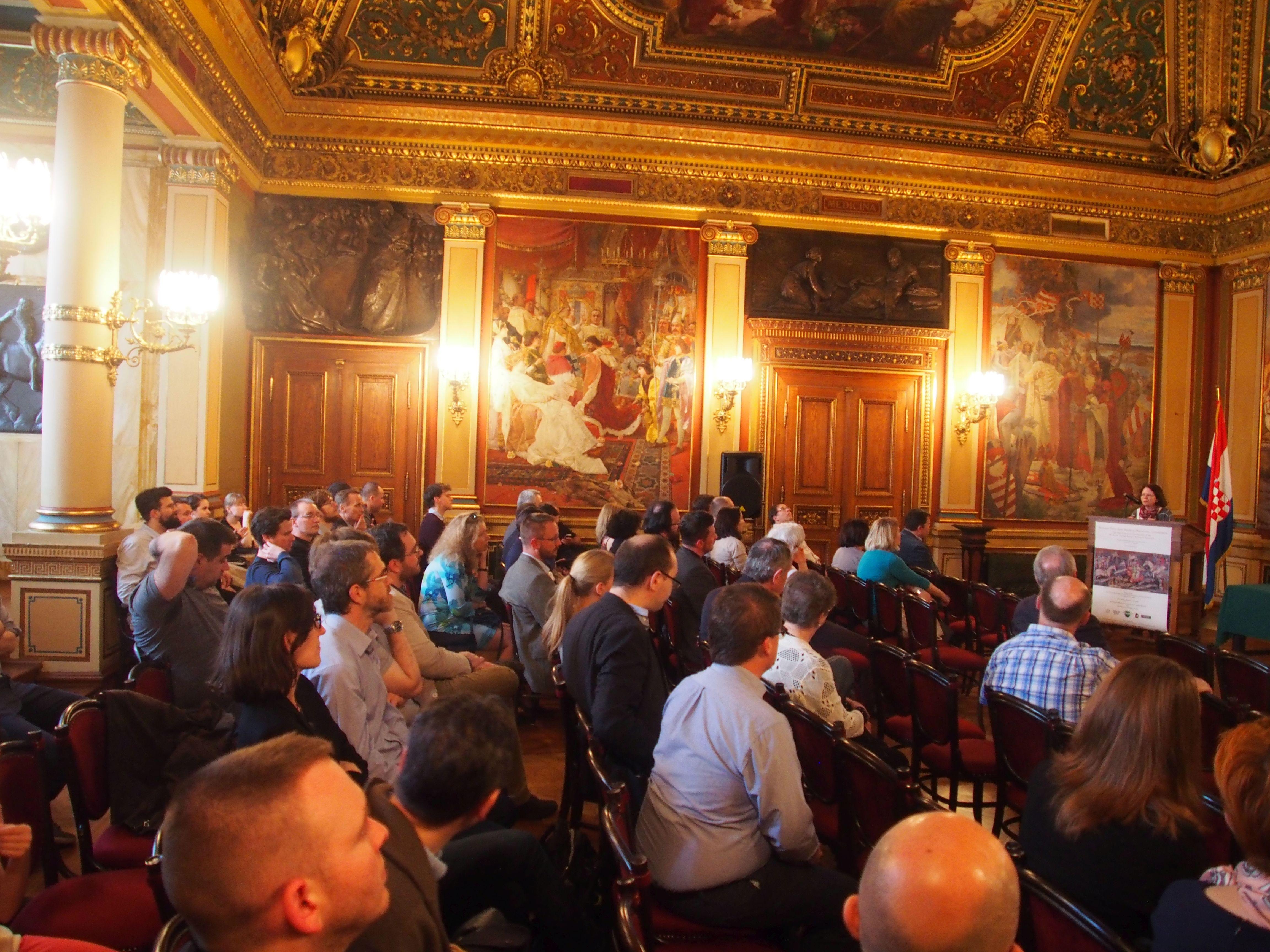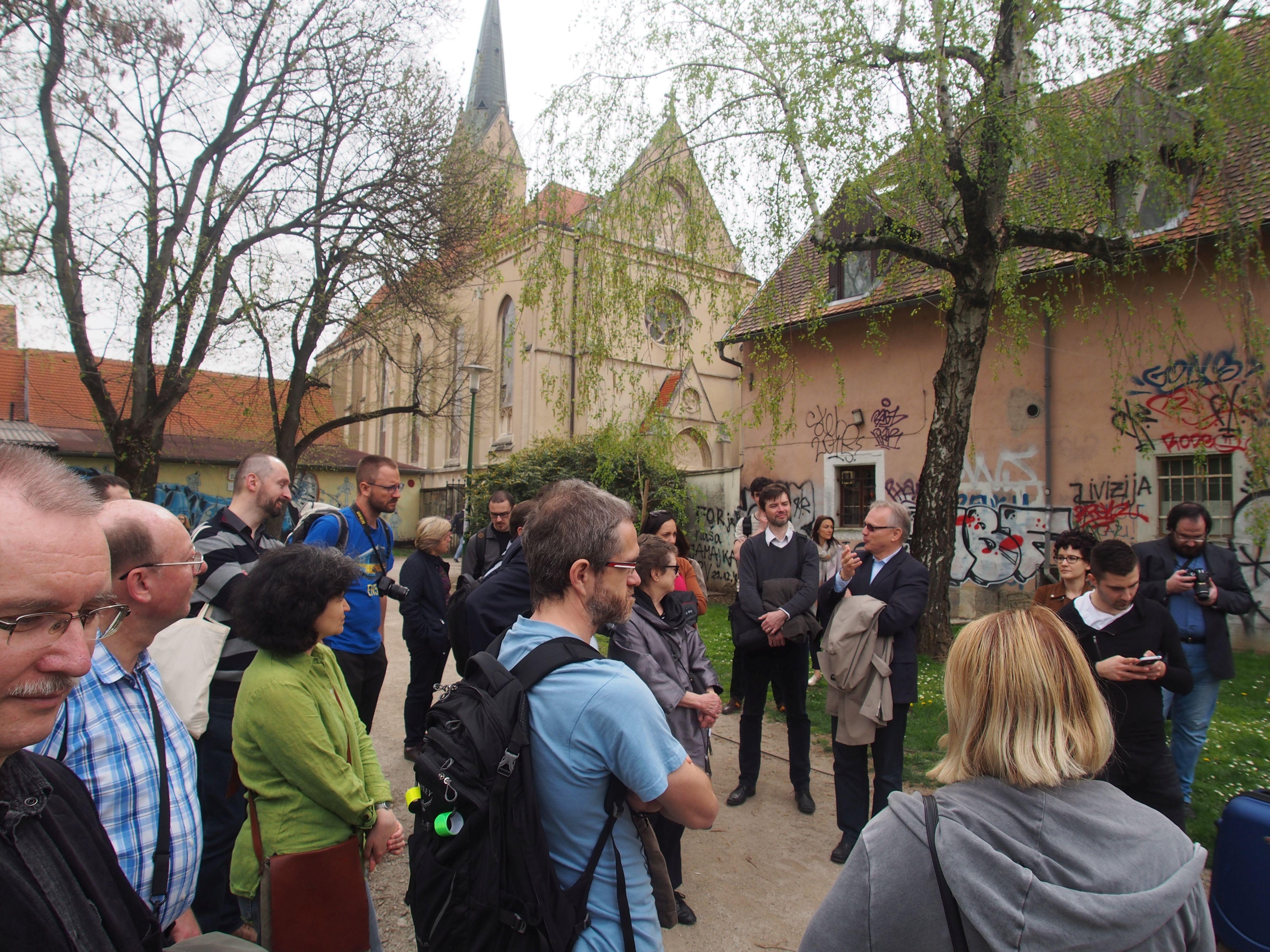Medieval Central Europe in Flux: International conference of MECERN in Zagreb organized by alumni of the Department of Medieval Studies
The Third Biennial Conference of the Medieval Central Europe Research Network (MECERN) on the theme Between Three Seas: Borders, Migrations, Connections took place at the Faculty of Humanities and Social Sciences, Zagreb (Croatia), between 12 and 14 April 2018. Already an established scholarly forum, founded at a conference at CEU in 2014, MECERN’s third major international event attracted almost 100 participants from 15 countries in Europe and North America. The main organizers were Luka Spoljarić (MA ‘08, PhD ‘13), Trpimir Vedriš (MA ‘04, PhD ‘15) and Borislav Grgin (MA ‘94), all faculty members at the University of Zagreb.
The choice of the main theme was triggered by the fact that in the summer of 2015 the countries of Central and South-eastern Europe were faced with a massive wave of refugees caused by the collapse of the established political order in the Near East. In the longue durée, however, this was not a new phenomenon. Throughout the Middle Ages the region of Central Europe, closed off by the Baltic, Black and Adriatic Seas [MECERN logo], was on numerous times exposed to the large-scale movements of people. Yet during this entire period migrations were also taking place on a micro level, through the movement of individuals, objects, and ideas.
The conference focused on the impact of both mass and individual movements on the region, the permeability of borders, and the manifold connections that reached beyond purely local contexts. In other words, the conference explored medieval Central Europe in flux through papers on political, social, cultural, economic, ecclesiastical, intellectual, legal and urban history, as well as the history of art and literature. Two thought-provoking keynote lectures were given by Neven Budak, Professor at the University of Zagreb and recurrent visiting professor at CEU, and Paul W. Knoll, Professor Emeritus of the University of Southern California, a renowned expert of Late Medieval Poland and Central Europe. The abstracts of the conference are accessible from this link.

The closing reception was held in the Golden Hall of the Croatian Institute of History, hosted by the Institute’s vice director, Gordan Ravančić (MA ‘97). The participants visited the cathedral treasury and got an insider’s view of the history and topography of medieval Zagreb through a valuable tour guided by Zrinka Nikolić Jakus (MA ‘97, PhD ‘04) and Neven Budak. The next international conference of MECERN will take place at the University of Gdańsk in 2020.

Photos: Judit Majorossy (MA ’97, PhD ’06)